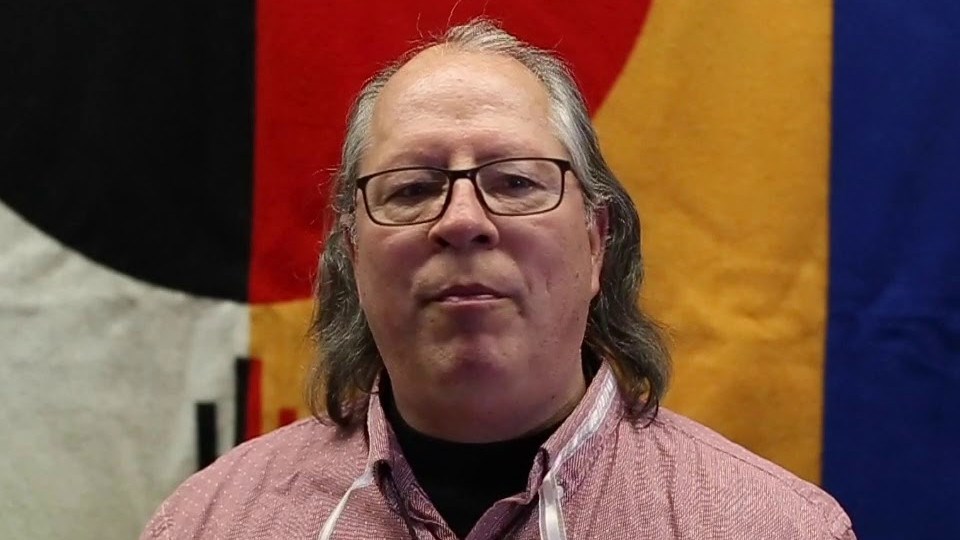Will Morin believes that the end of the Indigenous Studies program at University of Sudbury (U of S) began more than a decade ago. He says when the agreement with the federated universities operating on Laurentian University’s campus (LU) were dissolved after the latter filed for insolvency in February, the Indigenous Studies program was already on its last legs. The reason: specific and intentional decisions made by the Laurentian administration.
A former U of S Indigenous Studies professor and Anishinaabek/Ojibway artist, Morin is a member of Tricultural Committee for University Education at Sudbury, which consists of members from Indigenous advocates, the Coalition nord-ontarienne pour une université de langue française and Save our Sudbury (a Facebook-based group created in the wake of Laurentian’s insolvency).
On Sept. 9, the committee announced its intention to push for accountability from LU, but also for steps to be taken to support the creation of an independent Francophone university and the same for an Indigenous university. While the group is also pushing for LU to become an Anglophone institution in the same right, they say LU cannot — or should not — be in charge of the Indigineous and Francophone institutions.
As per a release from the Tricultural committee: “In secretively planning, then carrying out their destructive onslaught, the Laurentian Board and Administration have betrayed the public trust, and Laurentian as an institution has lost its legitimacy with regards to Sudbury and Northern Ontario.”
Morin told Sudbury.com that he believes Laurentian took the programs it wanted and what it could get funding for, then left the rest to falter.
“For over 10 years, I've been cautioning the University of Sudbury and the Department of Indigenous Studies that something was just not right up at the university,” said Morin. He said he routinely contacted the past three Laurentian presidents and questioned their motives and intentions, as he felt there was an increasing exclusion of the federated partners (Thorneloe, Huntington and the University of Sudbury).
Morin believes it was a targeted approach to remove funding and support from the U of S in order to shore up the programming at LU.
“They (LU) were moving toward isolating their funding, toward going out on their own,” said Morin. “Putting funding into hiring Indigenous faculty at Laurentian when the Department of Indigenous Studies (at U of S) was understaffed.”
Morin said this underfunding was despite the growing enrolment in the Indigenous studies program.
“No effort was made to collaborate with their federated partner, the University of Sudbury, to help support the growth of demand on Indigenous Studies courses by assisting in the transfer payments and additional funding. They ignored those needs.”
He also notes that the Indigenous Social Work program, once hosted at the U of S, was moved to LU during this 10-year period, and is now accredited through LU. Morin said even the change in placement of the much-anticipated Indigenous Sharing and Learning Centre, which opened on campus in 2017, points to the future move away from U of S.
Morin said the building was originally to be built between the U of S and LU main buildings on campus. Instead, the centre was moved closer to LU, and rather than a standalone building, it is now attached to LU and opens directly into the LU registrar's office.
These acts, among others, are what Morin said are examples of LU taking what it wanted from the Indigenous Studies program, the second oldest in the country, and leaving behind the rest. To put it plainly, Morin describes it as LU painting itself “with a red brush.”
Though he first acknowledges that identifying as an Indigenous person is not a prerequisite for teaching Indigenous content, Morin said in light of the thousands of remains found at residential schools and a Truth and Reconciliation Commission that is now six years old with many of its 94 calls to action going unanswered, perhaps the prerequisite should be reconsidered.
That, and the aspects of LU’s actions that Morin sees as “colonial,” picking and choosing what it likes and omitting the rest.
“The purpose of the post-secondary institution is to honor our shared history, and in doing so, provide individuals who have been denied that history, both Indigenous and non-Indigenous, in an academic setting to learn that information,” said Morin. “Laurentian just removed that from Northern Ontario.”
Even when six Indigenous studies courses were offered to the 140 U of S students who needed to finish their Indigenous Studies degree, the Indigenous Studies professors who created the programs were not offered the positions first. Instead, those teaching positions were first offered to full-time LU professors in the arts department or with seniority, then LU professors who had lost their position were offered a spot.
Then, the posting was opened to all, an external posting, and only then could the former U of S professors apply. You can read more about that story here.
“The example I give, to illustrate the harshness of it,” said Morin, “would be men teaching women's studies to men in the boys' change room.”
Morin hopes that the community will be able to define what it requires, especially as it has done for schools like Kenjgewin Teg in M'Chigeeng. The school offers secondary school courses as well as college and university courses (with Algoma and York University) that are Indigenous-led and have the potential to begin the first standalone Indigenous Studies institution.
Morin said the reason he joined the declaration made by the Tricultural committee on Sept. 9, is that he can’t wait another decade watching it all happen, especially, as he said, no one seems willing to investigate or require LU administration to face accountability, or consequences.
“Do we wait another 10 years for us to discover what somebody did 10 years ago,” asks Morin.
